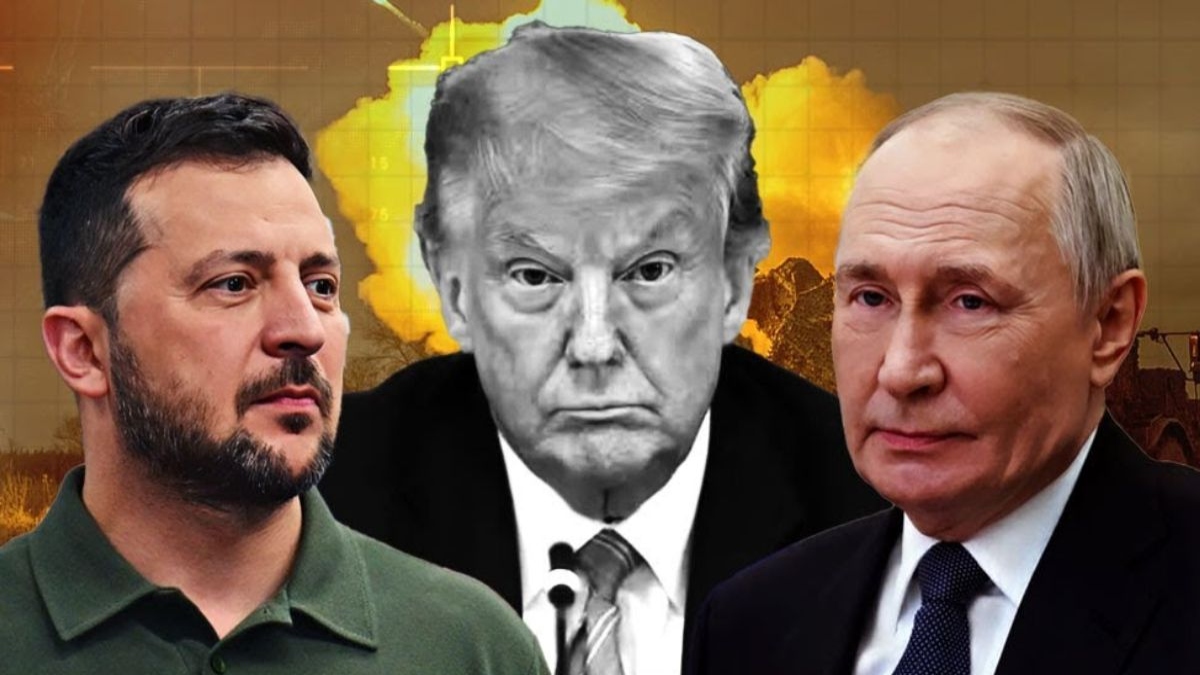The White House is considering a potential trilateral summit in Budapest involving the presidents of the United States, Russia, and Ukraine as part of ongoing efforts to negotiate an end to the years-long conflict, according to a Politico report, citing Trump administration official and a source familiar with the matter.
The choice of Hungary’s capital carries a note of historical irony for Ukraine, as it recalls the 1994 Budapest Memorandum — an agreement in which the US, UK, and Russia pledged to uphold Ukraine’s sovereignty in exchange for its nuclear disarmament, a promise shattered by Russia’s 2014 invasion.
Russian President Vladimir Putin’s 2014 assault on Ukraine proved the agreement meaningless when none of the signatories provided military forces to counter the attacks.
The US Secret Service is making preparations for the meeting in Hungary, a Central European country led by Prime Minister Viktor Orbán, a longtime ally of President Donald Trump since his first term in office.
When asked about Budapest as the venue for the meeting during Tuesday’s White House media briefing, White House press secretary Karoline Leavitt declined to confirm specifics about the potential summit location.
“I’m not going to confirm or deny locations,” she said.
Although the Secret Service routinely evaluates multiple venues and plans may still shift, Budapest is currently emerging as the leading option for the White House, according to the Politico report, citing two individuals granted anonymity to discuss private deliberations.
Reacting to the development, Polish Prime Minister Donald Tusk on Wednesday criticised the idea of Budapest being a potential venue for peace talks.
“Budapest? Not everyone may remember this, but in 1994 Ukraine already got assurances of territorial integrity from the US, Russia and the UK. In Budapest,” Politico quoted Tusk as saying.
“Maybe I’m superstitious, but this time I would try to find another place,” he added.
Impact Shorts
More ShortsRussian President Vladimir Putin has expressed a preference for Moscow, while French President Emmanuel Macron has lobbied for Geneva.
In an effort to secure the talks, Switzerland’s foreign minister even offered Putin “immunity” from an outstanding war crimes warrant if his country, renowned for its neutrality, were selected as host.
Still, the summit remains far from certain. After a meeting between European leaders and Ukrainian President Volodymyr Zelenskyy at the White House, German Chancellor Friedrich Merz said Monday that a follow-up conversation between Zelenskyy and Putin could take place within weeks.
Shortly after, Trump announced on social media that he would join the two leaders for a trilateral summit, touted as the final step in peace talks that gained traction after his meeting with Putin in Alaska last week.
However, Russian officials now appear to be dragging their feet on any direct engagement between Zelenskyy and Putin, reported Politico.
In an interview on state-controlled television on Tuesday, Russian Foreign Minister Sergey Lavrov said Moscow wouldn’t rule out talks with Ukraine, but emphasised a cautious, incremental approach: “step by step, gradually, starting from the expert level and then going through all the necessary stages.”
Leavitt reiterated on Tuesday that Putin has agreed to meet with Zelenskyy, and confirmed that the US is coordinating with both Russia and Ukraine to arrange the bilateral meeting.
“The president has spoken to both leaders about this and both leaders have expressed a willingness to sit down with each other,” Leavitt was quoted as saying.
Leavitt said the bilateral meeting with Putin and Zelenskyy could be followed by a trilateral one including Trump.
Meanwhile, Chairman of the Joint Chiefs Gen. Dan Caine will host top military officials from Germany, the UK, France, Finland, and Italy in Washington late Wednesday to begin talks on potential security guarantees and how to implement them, reported Politico, citing a defence official and a person familiar with the evolving plans.
Also on Wednesday, all 32 Nato defence chiefs will hold a virtual meeting led by Nato’s top general, Italian Adm. Giuseppe Dragone. Gen. Alexus Grynkewich, the new head of US European Command and Nato’s Supreme Allied Commander, is expected to join the call.
The urgent meetings highlight the scale of coordination required as European allies consider sending a peacekeeping force to Ukraine and ramping up purchases of US-made weapons for Kyiv.
With inputs from agencies


)

)
)
)
)
)
)
)
)



